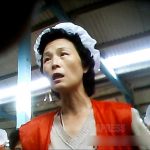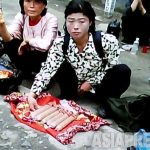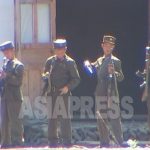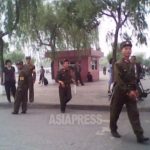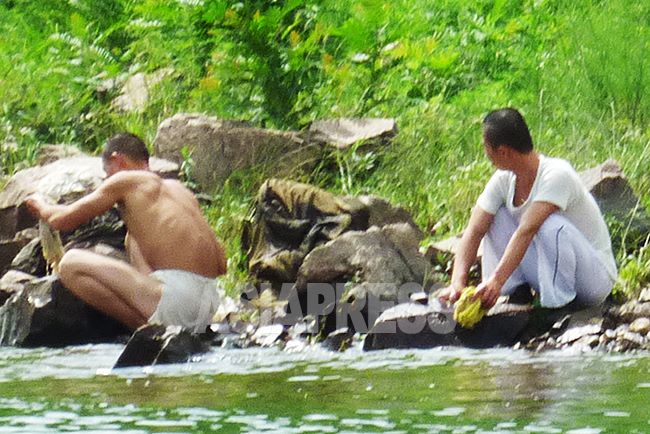
“It felt like the military is laying siege on the farming village.”
This is what a reporting partner who visited a collective farm in North Hamgyung Province to survey conditions there told ASIAPRESS in mid-July. Military units were mobilized to farms throughout the country starting in early spring to help with the spring planting, but now soldiers seem to be focusing on preventing the stealing of harvested crops. (KANG Ji-won)
◆ 100 soldiers stationed at a village of 500 farmers
The collective farm visited by the reporting partner, who lives in a city in North Hamgyung Province, has around 500 employees and mainly cultivates corn. It is slightly smaller than the average farm in the province.
Starting in July, the Kim Jong-un regime has shifted the remit of military units mobilized to farms from farmwork to security and crackdowns, and is making efforts to improve the military’s relations with farmers. The following is an interview with the reporting partner about the farm he surveyed.
―― How big is the military unit at the farm?
There is one company of soldiers there. Two platoons in the company are helping out with farm-related activities, but the focus has been on managing the village’s water supply and strengthening river levies as part of efforts to prevent damage from monsoon rains. One platoon has been focusing on security and crackdowns.
※ Korean People’s Army companies are typically made up of three platoons. One platoon is generally made up of around 35 soldiers.
―― It seems there’s a lot of soldiers at the farm, despite its small size.
It’s almost like the soldiers are laying siege, which made it hard to enter the farm. All the soldiers stand guard at checkpoints to make sure no crops are stolen. They are far more focused on crackdowns and security than on farming.
In any case, they put a lot of effort into preventing the stealing of crops. The soldiers are even preventing farmers from taking out potatoes grown on private plots of land. It’s really annoying. I tried to leave the village after buying some potatoes from a farmer I know, but the soldiers suspected me of stealing them and I was only allowed past once they confirmed which house I had gotten the potatoes from.
※ When the harvest season approaches, farmers and police were mobilized to farm fields all night to prevent anything from being stolen.
◆ Military makes efforts to improve relations with farmers
―― Soldiers starting fights and stealing from others is a problem in urban areas.
The military is really focused on improving relations between farmers and soldiers. If a soldier causes an issue at a farm, their superior is relieved of duty, from what I’ve heard. I’ve also heard that there was an order at a military base to “steal things from other farms. Don’t ever steal anything from the village you are stationed in.”
At the collective farm the reporting partner visited, a soldier who stole and ate a chicken in May was demoted, and the platoon he was a part of was sent back to its home base. Soldiers know that they will face food shortages if they go back to their home base, so almost none of them steal anything anymore. That’s because they know it’s better to be able to eat at least vegetables at farms, which have laxer rules than military bases, according to the reporting partner.
―― Are soldiers stationed at the farm eating enough?
No. Even the military doesn’t have enough food. The military unit at the collective farm was surviving off wheat and barley, but the soldiers were hungry, so they fished at the river or went to gather mountain greens. Even the farm put together side dishes for the soldiers.
―― Are farmers scared of hungry soldiers?
The soldiers are trying to help out where they can. They help with cutting logs for firewood, picking weeds in farm fields, and other tasks, so the relationship between them and the farmers seemed to be alright. The soldiers help prevent people from coming into the farming area and provide security for harvested crops, so one farmer told me that ‘we won’t have to worry about people stealing crops this year if the soldiers can just refrain from stealing what’s been harvested.’
The authorities have deployed military units to farming areas to prevent food from being stolen from collective farms. The corn harvest starts in late August, so the authorities are putting systems into place to prevent food intended for use by the government from being siphoned off.
Despite efforts to confirm whether military units have been deployed in areas outside of North Hamgyung Province, including Yanggang and North Pyongan provinces, ASIAPRESS was unable to confirm whether military units have been deployed in farms nationwide.
※ ASIAPRESS communicates with its reporting partners through Chinese cell phones smuggled into North Korea.
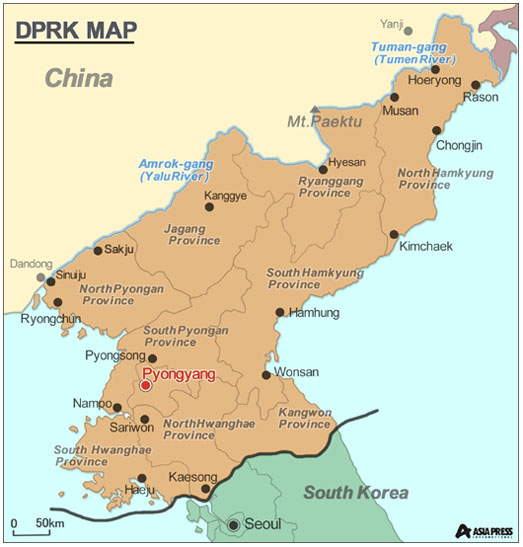
- <Inside N.Korea> Spring wheat harvest is finished and delivered to the army・・・Farmers rebel without their share
- <Photo Report> A visit to a North Korea-China trade hub…Freight trucks line up to head into North Korea, but drivers not allowed to leave vehicles
- Interview About Conditions Inside North Korea Pt.2 -What people think about the satellite launch-
- Interview About Conditions Inside North Korea Pt.1 -Is it true that people have died of starvation?-
ASIAPRESS asks a Chinese businessman how North Korean business is doing: “North Korean labor is of more interest than trade”
